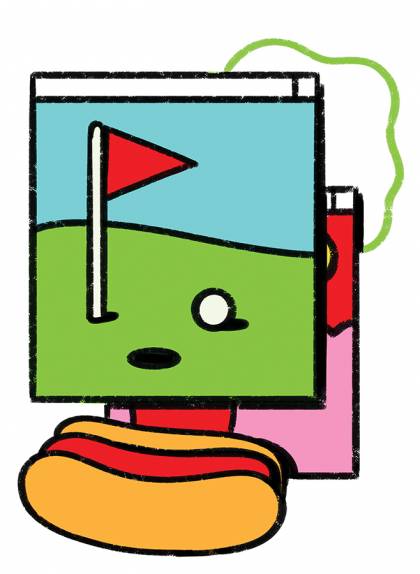In 2020, the Alumni Association had already prioritized virtual events as part of its five-year strategic plan. But when the pandemic hit that March, ambition quickly became a reality. Its online offerings launched in the first months of the crisis turned out to be so popular—and far-reaching—that the Alumni Association is now figuring out how to add an online dimension to events that were traditionally only in person.

Image credit: Illustration by Jackie Ferrentino
While the Alumni Association shifted to online programming shortly after the COVID-19-related shutdowns, Vicky Schneider, Ed '13 (MA), senior associate director of Lifelong Learning, and her team built a new learning platform called Hopkins at Home from the ground up in roughly seven days. Its goal: to boost both alumni engagement and public community outreach with free events open to anyone through programs such as faculty-led mini courses. "During a time when there were millions of eyes on Hopkins, thanks to the COVID-19 dashboard, the university thought to leverage this opportunity to highlight all the great work that Hopkins does," Schneider says.
The programming was a resounding success. From May 2020 through 2021, the Alumni Association saw the highest number of event registrations compared to the previous two years. Events also drew more participants from around the world, including from Germany, Russia, Australia, the United Arab Emirates, and Qatar. "Online is by far more inclusive," says Susan deMuth, associate vice president for alumni engagement and annual giving. "Whether they have a physical disability or a financial limitation or just a scheduling conflict, our alums have the ability to connect with us, no matter where they are."
This past summer, the association and the nine Hopkins schools began to reintroduce in-person alumni events to this year's calendar, including outdoor mini golf in San Francisco, a food and walking tour in New York City, and a minor league baseball game in Charlotte, North Carolina. The association is exploring how best to orchestrate a hybrid event to engage both the in-person and digital audiences. "You can't just stick a single cellphone in front of somebody and call it a hybrid event," Schneider says. "We don't want the virtual audience to feel like an afterthought." Nor do they want to cut off a lively pre-reception because an online audience is waiting for a talk to start.
The approach to hybrid events will be decided case by case based on the association's target audience and goals: "It is important to look at every event and find the right way to connect with our alumni in a way that is meaningful and engaging. It is not a one-size-fits-all scenario," deMuth says.
Posted in Alumni







